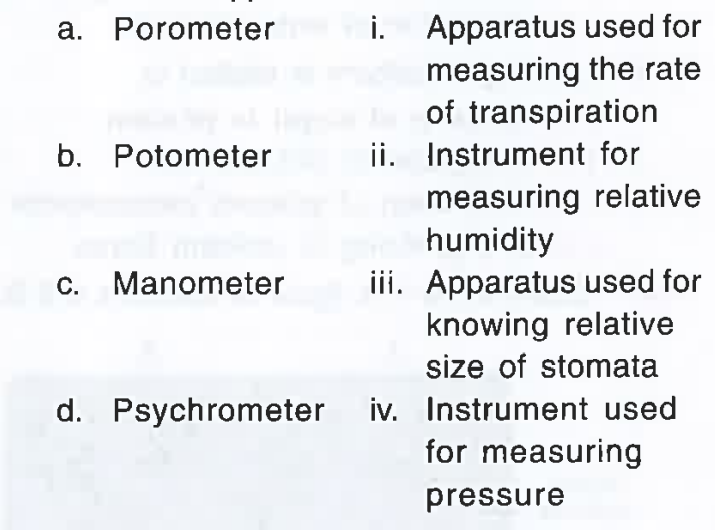What is the significance of juxtaglomerular apparatus (JGA) in kidney function?
Step-by-Step Solution:
1. Definition of Juxtaglomerular Apparatus (JGA):
- The Juxtaglomerular Apparatus (JGA) is a specialized structure located in the kidney, specifically at the junction of the afferent arterioles and the distal convoluted tubule of the nephron. It consists of specialized cells that play a crucial role in kidney function.
2. Components of JGA:
- The JGA is composed of three main types of cells:
- Juxtaglomerular cells: Located in the walls of the afferent arterioles, these cells are responsible for the secretion of renin.
- Macula densa cells: Located in the distal convoluted tubule, these cells sense sodium concentration in the filtrate.
- Extraglomerular mesangial cells: These cells provide structural support and facilitate communication between the other two cell types.
3. Role in Blood Pressure Regulation:
- The JGA plays a significant role in regulating blood pressure. When blood pressure drops or when there is a decrease in sodium chloride concentration in the distal convoluted tubule, the macula densa cells signal the juxtaglomerular cells to release renin.
4. Renin-Angiotensin-Aldosterone System (RAAS):
- Renin is an enzyme that initiates the Renin-Angiotensin-Aldosterone System (RAAS). It converts angiotensinogen (produced by the liver) into angiotensin I, which is then converted into angiotensin II by the angiotensin-converting enzyme (ACE) in the lungs. Angiotensin II has several effects:
- It causes vasoconstriction, which increases blood pressure.
- It stimulates the adrenal cortex to release aldosterone.
5. Effects of Aldosterone:
- Aldosterone promotes sodium reabsorption in the kidneys, which leads to water retention. This increases blood volume and, consequently, blood pressure. It also helps in maintaining electrolyte balance.
6. Glomerular Filtration:
- The JGA also plays a role in glomerular filtration by regulating the pressure within the glomeruli. Proper functioning of the JGA ensures efficient filtration of blood, which is essential for the formation of urine.
7. Summary of Significance:
- In summary, the JGA is significant for:
- Maintaining blood pressure through the RAAS.
- Regulating sodium and water balance.
- Ensuring efficient glomerular filtration.
- The Juxtaglomerular Apparatus (JGA) is a specialized structure located in the kidney, specifically at the junction of the afferent arterioles and the distal convoluted tubule of the nephron. It consists of specialized cells that play a crucial role in kidney function.
- The JGA is composed of three main types of cells:
- Juxtaglomerular cells: Located in the walls of the afferent arterioles, these cells are responsible for the secretion of renin.
- Macula densa cells: Located in the distal convoluted tubule, these cells sense sodium concentration in the filtrate.
- Extraglomerular mesangial cells: These cells provide structural support and facilitate communication between the other two cell types.
- The JGA plays a significant role in regulating blood pressure. When blood pressure drops or when there is a decrease in sodium chloride concentration in the distal convoluted tubule, the macula densa cells signal the juxtaglomerular cells to release renin.
- Renin is an enzyme that initiates the Renin-Angiotensin-Aldosterone System (RAAS). It converts angiotensinogen (produced by the liver) into angiotensin I, which is then converted into angiotensin II by the angiotensin-converting enzyme (ACE) in the lungs. Angiotensin II has several effects:
- It causes vasoconstriction, which increases blood pressure.
- It stimulates the adrenal cortex to release aldosterone.
- Aldosterone promotes sodium reabsorption in the kidneys, which leads to water retention. This increases blood volume and, consequently, blood pressure. It also helps in maintaining electrolyte balance.
- The JGA also plays a role in glomerular filtration by regulating the pressure within the glomeruli. Proper functioning of the JGA ensures efficient filtration of blood, which is essential for the formation of urine.
- In summary, the JGA is significant for:
- Maintaining blood pressure through the RAAS.
- Regulating sodium and water balance.
- Ensuring efficient glomerular filtration.
Topper's Solved these Questions
- EXCRETORY PRODUCTS AND THEIR ELIMINATIONBOOK - ICSECHAPTER - EXCRETORY PRODUCTS AND THEIR ELIMINATIONEXERCISE - NCERT EXERCISES WITH ANSWER (DIFFERENTIATE BETWEEN)
11 Videos
- EXCRETORY PRODUCTS AND THEIR ELIMINATIONBOOK - ICSECHAPTER - EXCRETORY PRODUCTS AND THEIR ELIMINATIONEXERCISE - TEST YOUR PROGRESS ( HIGHER ORDER THINKING SKILLS QUESTIONS (HOTS))
7 Videos
- ENZYMES BOOK - ICSECHAPTER - ENZYMES EXERCISE - REVIEW QUESTIONS (LONG ANSWER TYPE QUESTIONS)
6 Videos
- KINGDOM FUNGI BOOK - ICSECHAPTER - KINGDOM FUNGI EXERCISE - REVIEW QUESTIONS (LONG ANSWER TYPE QUESTIONS)
5 Videos
Similar Questions
Knowledge Check
Juxtaglomerular apparatus is made up of
Ajuxtaglomerular cells, macula densa and lacis cellsBjuxtaglomerular cells, lacis cells and myoepithelial cellsCjuxtaglomerular cells, macula densa and argentaffin cells.DNone of the above
Which one is not in contact with juxtaglomerular apparatus?
View SolutionWhere is juxtaglomerular apparatus present in the nephron?
View SolutionWhat is the location of kidney
View SolutionRenin is secreted by
(a) Cells of stomach
(b) Cells of intestine
(c) Cortical cells of kidney
(d) Cells of juxtaglomerular apparatus of kidney
View SolutionWhat conditions are responsible for stimulation of juxtaglomerular apparatus
View SolutionWhat is the functional significance of the periosteum in a long bone?
View SolutionMatch the apparatus with function

View Solution
